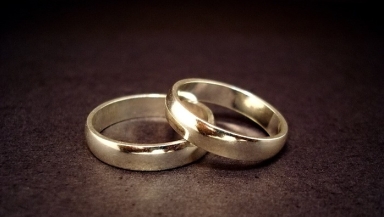
Britain has witnessed a rapid rise in sharia marriages with many of them polygamous, a leading lawyer warns today.
Aina Khan, a London solicitor who specialises in sharia, told Frances Gibb, legal editor of The Times, that there are now as many as 100,000 sharia marriages in the UK.
The problem with them is that they leave the women in particular with little protection in law, especially if they get divorced.
A previous report by the charity AURAT which helps victims of so-called "honour" based violence found that two-thirds of sharia marriages were polygamous. The report also found that some women married in sharia only believe their marriages to be legally valid because they had taken place in the UK.
Khan said: "Probably a quarter of all the couples I see involve polygamy issues. There has been a high rise in recent years because people can have a secret Nikah (Islamic 'marriage' ceremony) and no one will know about it."
The Government is understood to be concerned about the way sharia councils are working in some parts of the country and there have been reports that women have suffered through forced marriages or discriminatory divorce proceedings.
There are fears that the growth in use of sharia is creating a parallel legal system within the Muslim community in this country.
To obtain a divorce in sharia, a Muslim man must say three times: "I divorce you." Women cannot do this and it is much harder for them to get a divorce in sharia.
Ayesha Vardag, president of Vardags, specialists in divorce and family law, told Christian Today: "I've seen a rising number of these cases over the past decade.
"Because of the strong religious and cultural censure of extra-marital sex, and because both marriage and divorce under Sharia law can be achieved with little formality, some men who want casual sex will do things like arrange a speedy marriage in a Knightsbridge hotel room then divorce the new bride by text message a few hours later.
"In other cases you'll have a wife who believes she's been validly married for years and it will come as a complete shock to her to learn that under English law she never got married at all.
"Then the lawyers have to be very creative. You can get financial provision if there are children, sometimes in our experience to the tune of many millions. Also, there may be financial provision as a void marriage - though that's rather cutting edge law. But none of that is easy and it's not financially viable in lower income cases. Those wives are left high and dry and at the mercy of the state and their wider families.
"England is permitting a parallel track system, and the individuals who come unstuck between the tracks are the women, often vulnerable and ill-informed, who think they have a legally binding marriage then find themselves out on the street with nothing the law can do to help them."













